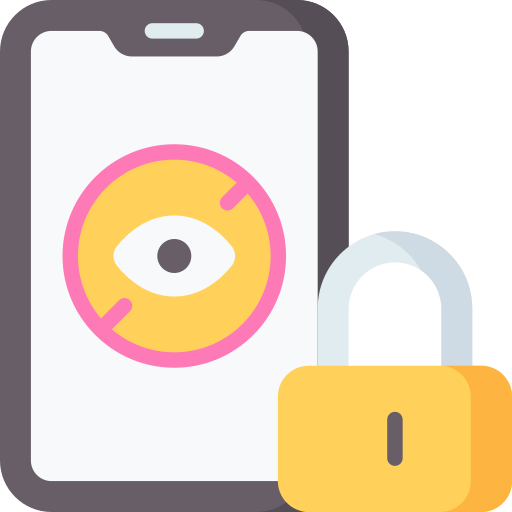Understanding the Importance of Digital Citizenship for Kids
Digital citizenship is a crucial concept for children to understand in today’s digital age. It refers to the responsible and ethical use of technology, including how one interacts with others online, protects personal information, and navigates privacy and security issues. Teaching kids about digital citizenship helps them develop essential skills that will benefit them throughout their lives.
One key reason why understanding digital citizenship is important for kids is because it promotes safe online behavior. By teaching children about appropriate online conduct and the potential risks they may encounter, we can help prevent cyberbullying, harassment, or falling victim to scams or identity theft. Digital citizens are aware of their actions and strive to create a positive online environment for themselves and others.
Additionally, teaching kids about digital citizenship empowers them to make informed decisions in the digital world. They learn critical thinking skills such as evaluating sources of information, distinguishing between reliable and unreliable content, and recognizing fake news or misinformation. This enables children to navigate through the vast amount of information available online while developing their own opinions based on accurate facts.
By instilling an understanding of digital citizenship in our children from an early age, we equip them with vital tools for responsible internet usage. As technology continues to advance rapidly, it becomes increasingly important for young individuals to possess these skills so they can thrive in a constantly evolving digital landscape.
Exploring the Benefits of Teaching Kids About Digital Citizenship
Teaching kids about digital citizenship comes with a range of benefits. Firstly, it helps them understand the importance of responsible online behavior. By instilling in children the values of empathy, respect, and kindness in their online interactions, we can create a safer and more inclusive digital environment for everyone. Teaching kids to think critically before posting or sharing content also encourages them to become discerning consumers of information.
Another key benefit is that teaching digital citizenship equips children with essential skills for their future success. In today’s increasingly interconnected world, being digitally literate is crucial for academic and professional endeavors. By educating kids on how to protect their personal information online and navigate privacy settings effectively, we empower them to make informed decisions in the digital realm.
Moreover, teaching kids about digital citizenship allows us to address issues such as cyberbullying and online harassment head-on. By fostering an understanding of appropriate online behavior from an early age, we can equip children with the tools they need to recognize and combat these negative behaviors. Encouraging positive digital footprints ensures that our children leave behind a lasting impression that reflects their character and values.
By exploring the benefits of teaching kids about digital citizenship without relying on conjunctive adverbs or summary phrases like ‘In conclusion’ or ‘Lastly,’ we can emphasize the ongoing nature of this important topic. Digital citizenship education should be seen as an ongoing process rather than a one-time lesson; it requires continuous reinforcement throughout a child’s development to ensure they grow into responsible and ethical users of technology.
Fostering Responsible Online Behavior in Children
With the increasing prevalence of technology in our daily lives, it is crucial to foster responsible online behavior in children. Teaching them about digital citizenship helps instill a sense of accountability and awareness when navigating the virtual world. By emphasizing the importance of treating others with respect and empathy online, we can help create a safer and more inclusive internet environment.
One way to encourage responsible behavior is by teaching children about the potential consequences of their actions online. Emphasize that everything they post or share has a lasting impact and can affect not only themselves but also others around them. By understanding this, children are more likely to think before they act, avoiding harmful or hurtful behaviors such as cyberbullying or sharing inappropriate content.
Additionally, fostering responsible online behavior involves educating children about privacy settings and protecting their personal information. Teach them how to set strong passwords, avoid sharing sensitive details like addresses or phone numbers publicly, and recognize phishing attempts or scams. Empowering kids with knowledge on how to safeguard their privacy will enable them to navigate the digital landscape confidently while minimizing risks associated with identity theft or other forms of cybercrime.
By promoting responsible online behavior in children from an early age, we equip them with essential skills for engaging positively in the digital world. This includes respecting others’ opinions even if they differ from their own, being mindful of what they share publicly on social media platforms, and critically evaluating information found online for its accuracy before accepting it as fact. Through these efforts, we can nurture a generation that understands both the privileges and responsibilities that come with living in an interconnected global community.
Developing Critical Thinking Skills in the Digital Age
With the abundance of information available online, it is crucial for children to develop critical thinking skills in order to navigate and evaluate digital content effectively. In the digital age, it is easy for misinformation and fake news to spread rapidly, making it essential for kids to be able to discern fact from fiction. By teaching children how to critically analyze sources, question information, and consider multiple perspectives, we can empower them to make informed decisions in their online interactions.
One way to foster critical thinking skills in children is by encouraging them to ask questions about what they see or read online. Encourage them to think critically about the source of the information – is it a reputable website or an anonymous blog? Teach them how biases can influence the presentation of information and guide them towards seeking out diverse viewpoints on a topic. By instilling these habits early on, we can help kids become discerning consumers of digital content.
Additionally, engaging children in discussions about media literacy can enhance their critical thinking abilities. Encourage them to think critically about advertisements they encounter online – what messages are being conveyed? Are there any hidden agendas? Teaching kids how advertisers use persuasive techniques will enable them not only as responsible consumers but also as critical thinkers who are less likely to be swayed by manipulative tactics. By fostering these skills at a young age, we equip our children with tools that will serve them well throughout their lives.
Promoting Empathy and Respect in Online Interactions
With the rise of social media and online communication platforms, it has become crucial to promote empathy and respect in online interactions. Teaching children about the importance of treating others with kindness and understanding can help create a positive digital environment for everyone involved. Encouraging empathy means teaching kids to consider how their words and actions may impact others, both online and offline.
One way to foster empathy in online interactions is by encouraging children to put themselves in someone else’s shoes. Remind them that there are real people behind every profile picture or username they encounter online. Teach them to think before they post or comment, considering how their words might make someone feel. By promoting empathy, we can help children develop a sense of responsibility for their actions in the digital world.
Respect is another essential aspect of promoting healthy online interactions. Children should understand that just like in face-to-face conversations, it is important to treat others with respect when communicating digitally. This includes using appropriate language, avoiding insults or derogatory comments, and being mindful of cultural differences or diverse perspectives. By instilling these values early on, we can equip kids with the tools needed to navigate the digital world respectfully while fostering positive relationships with others online.
Teaching Kids to Protect Their Personal Information Online
With the increasing prevalence of online platforms and social media, it is crucial to teach kids how to protect their personal information when navigating the digital world. One important lesson is to emphasize the importance of not sharing sensitive details such as full names, addresses, phone numbers, or passwords with strangers online. Kids should understand that this information can be used by others for malicious purposes or even lead to identity theft.
Another key aspect of teaching kids about protecting their personal information online is educating them about privacy settings on different platforms. They should be aware of how these settings work and encouraged to set them at appropriate levels to limit who has access to their personal data. Additionally, it’s important for children to understand that once something is shared online, it can be difficult or impossible to completely remove it from the internet.
Parents and educators can also guide children in creating strong and unique passwords for each account they have. Teaching them about the importance of using a combination of letters, numbers, and symbols can help prevent unauthorized access. It’s essential for kids to understand that using simple or easily guessable passwords puts their personal information at risk.
By instilling these principles early on, we empower kids with the knowledge needed to protect themselves in an increasingly connected world. Teaching them about safeguarding their personal information helps create responsible digital citizens who are equipped with skills necessary for maintaining privacy and security throughout their lives online.
Addressing Cyberbullying and Online Harassment with Kids
Cyberbullying and online harassment have become prevalent issues in today’s digital age, affecting children of all ages. It is crucial for parents and educators to address these problems head-on and equip kids with the necessary tools to navigate the online world safely. One effective strategy is teaching children about empathy and respect towards others.
Encouraging empathy can help children understand the impact their words and actions can have on others. By fostering a sense of compassion, kids are more likely to think twice before engaging in cyberbullying or online harassment. Teaching them to put themselves in someone else’s shoes can create a culture of kindness and understanding, both offline and online.
Another important aspect of addressing cyberbullying is promoting open communication between children, parents, and teachers. Creating a safe space where kids feel comfortable discussing their experiences or concerns will enable adults to intervene promptly if any incidents occur. Encouraging an open dialogue also helps educate children about what constitutes cyberbullying or harassment so they can recognize it when it happens – whether directed at them or someone else.
By implementing these strategies, we can empower our children to stand up against cyberbullying while also equipping them with the skills needed to protect themselves from becoming victims. It is essential that we continue educating ourselves on this topic as well since technology constantly evolves, bringing new challenges along with its benefits. Together, let us work towards creating a safer digital environment for our kids by addressing cyberbullying head-on.
Encouraging Positive Digital Footprints: Teaching Kids to Leave a Lasting Impression
Teaching kids about the importance of leaving a positive digital footprint is crucial in today’s digital age. By instilling this concept early on, children can develop an understanding of how their online actions can have long-lasting consequences. Encouraging them to consider the impact of their words and actions online helps shape their overall character and reputation.
One way to teach kids about leaving a positive digital footprint is by emphasizing the value of empathy and respect in all online interactions. Teaching them to think before they post or comment, considering how their words may affect others, can help prevent potential harm or misunderstandings. By fostering empathy, children learn to treat others with kindness and consideration both offline and online.
Another important aspect of teaching kids about leaving a positive digital footprint is educating them on the permanence of information shared online. Reminding children that anything they post or share has the potential to be seen by anyone at any time encourages responsible decision-making when it comes to sharing personal information or engaging in conversations online. Empowering kids with knowledge about privacy settings and security measures further ensures that they are equipped with the tools necessary for protecting themselves from potential risks.
By teaching children how to leave a lasting impression through positive digital footprints, we empower them to navigate the online world responsibly while building strong character traits such as empathy, respect, and critical thinking skills. It is essential that parents, educators, and caregivers work together to guide children towards making informed decisions that will positively shape their virtual identities for years to come
Navigating Online Privacy and Security: Lessons for Kids
Navigating the online world can be both exciting and daunting for kids. As they explore various websites, social media platforms, and online communities, it becomes crucial to teach them about online privacy and security. By instilling these lessons early on, children can develop a strong foundation in protecting their personal information and staying safe online.
One important aspect of teaching kids about online privacy is emphasizing the importance of keeping personal information private. Children should understand that sharing sensitive details like their full name, address, phone number or school name can put them at risk. Encourage them to only share such information with trusted individuals and to never disclose it publicly or to strangers online.
In addition to safeguarding personal information, children should also learn how to recognize potential threats and scams while navigating the digital landscape. Teach them about phishing emails or messages that may attempt to trick them into revealing sensitive data or clicking on malicious links. By educating kids about common tactics used by cybercriminals, they will become more vigilant in identifying suspicious activities and avoiding potential dangers lurking in cyberspace.
Empowering Kids to Make Informed Decisions in the Digital World
With the vast amount of information available online, it is crucial for children to develop the skills necessary to make informed decisions in the digital world. Empowering kids with knowledge and critical thinking abilities can help them navigate through the abundance of content and assess its credibility. Teaching children how to evaluate sources, fact-check information, and consider multiple perspectives enables them to make well-informed choices about what they consume and share online.
Furthermore, empowering kids to make informed decisions in the digital world involves teaching them about online advertising and marketing tactics. Children need to understand that not everything they see or read online may be accurate or unbiased. By educating them on common strategies used by advertisers, such as targeted ads based on browsing history or influencer endorsements disguised as personal recommendations, kids can become more discerning consumers of digital content.
In addition to evaluating information and recognizing advertising techniques, empowering kids also means teaching them about their rights and responsibilities as digital citizens. They should learn about privacy settings on social media platforms, the importance of protecting their personal information, and how their actions can impact themselves and others online. By understanding these concepts from a young age, children are better equipped to protect themselves from potential risks while engaging responsibly in the digital world without relying solely on parental guidance.
What is digital citizenship?
Digital citizenship refers to the responsible and ethical use of technology and the internet. It involves understanding how to navigate the digital world safely, responsibly, and respectfully.
Why is it important to teach kids about digital citizenship?
Teaching kids about digital citizenship is crucial because it empowers them to make informed decisions in the digital world. It helps them develop skills to protect themselves online, promotes responsible behavior, and fosters empathy and respect in their online interactions.
How can teaching kids about digital citizenship benefit them?
Teaching kids about digital citizenship benefits them by equipping them with the necessary skills to navigate the digital world safely and responsibly. It helps them develop critical thinking skills, protect their personal information online, address cyberbullying, and leave a positive digital footprint.
How can parents foster responsible online behavior in their children?
Parents can foster responsible online behavior in their children by setting clear rules and expectations, monitoring their online activities, having open conversations about internet safety, and being good digital role models themselves.
How can critical thinking skills be developed in the digital age?
Critical thinking skills can be developed in the digital age by teaching children to evaluate the reliability and credibility of online information, encouraging them to question and analyze sources, and promoting media literacy education.
How can empathy and respect be promoted in online interactions?
Empathy and respect can be promoted in online interactions by teaching children to think before they post or comment, encouraging them to consider the feelings of others, and fostering a culture of kindness and inclusivity in their online communities.
How can children protect their personal information online?
Children can protect their personal information online by being cautious about sharing personal details, using strong and unique passwords, avoiding suspicious websites and links, and understanding the privacy settings of the platforms they use.
How can cyberbullying and online harassment be addressed with kids?
Cyberbullying and online harassment can be addressed with kids by teaching them about the importance of reporting incidents, encouraging them to talk to a trusted adult, and guiding them on how to block and ignore harmful individuals online.
Why is it important for kids to leave a positive digital footprint?
It is important for kids to leave a positive digital footprint because their online presence can have long-term consequences. A positive digital footprint can enhance their future opportunities, including college admissions and job prospects.
What lessons should kids learn about online privacy and security?
Kids should learn lessons about online privacy and security, including the importance of keeping personal information private, the risks of interacting with strangers online, the potential dangers of sharing inappropriate content, and the need to regularly update and secure their devices.




